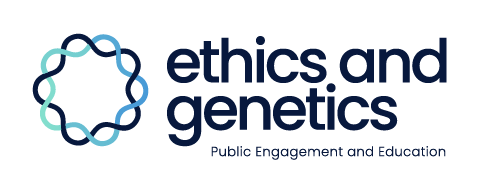
Genetic Technology: Benefits and Risks
What are genetic technologies?
Genetic technologies range from at home genetic test kits, to gene editing tools such as CRISPR, to the cultivation of stem cells from reprogrammed skin or blood cells.
Rapid advancements from 2018 to 2020
First genetically modified children are born
Stem Cells created from reprogrammed skin and blood cells
Human germ-line edited for the first time
First three-parent IVF baby is born
Every newborn child in the UK will have their genome sequenced
Benefits
Genome sequencing - the process of determining the complete DNA sequence held on each of our genomes - could hold the key to improving our understanding of a range of diseases. Analysing someone’s genome can also reveal their chances of developing certain debilitating or terminal illnesses, and help in developing personalised treatments based on genetic factors.
Gene editing - the manipulation of DNA and modification of genes - could one day be used to protect people from a variety of hereditary conditions, such as cystic fibrosis, sickle cell anemia, genetic blindness, AIDS, and muscular dystrophy.

Genetic technology has huge potential, but what are the risks?
Gene Editing Risks
In 2018, a Chinese researcher named He Jiankui used the gene editing tool CRISPR in an attempt to make two twins genetically resistant to HIV. The first genetically modified humans were born.
Many other countries have taken steps leading towards the birth of the first genetically modified humans. This was also the first time that the human germline was modified.
When alterations are made to the human germline, the genome of an individual is edited in such a way that the change is heritable. The alterations will be passed onto the next generation. Although gene editing tools like CRISPR are very precise, mistakes that are made - any unintentional edits - will affect how genes function. Potentially creating mutations and new diseases that could spread throughout the population.
Genome Sequencing Risks
Our DNA can be predictive of our genetic predispositions, as well as those of our family members - extending over generations. A genome is inheritable, and unique. It is not possible to make it anonymous.
In many countries across the world, governments are sequencing and storing the genome profiles of their citizens. This will improve our understanding of a range of diseases, and eventually help find treatments for them. As corporations are also amassing vast databases of personal genome data, how might this data be used in the future?
Life insurers have already made the disclosure of any previous genetic tests obligatory. Employers or educational institutions could make genetic tests part of their own evaluations of candidates. As for how genomic data might be used and what decisions will be taken about us, the mass surveillance by government agencies of their own citizens is a chilling reminder of the way information technology can be used.
Aside from the risks, editing human genes raises ethical concerns
Should we enhance human biological make-up? How will personal genomic data be used in the future?
Some of the scientists responsible for creating gene editing technologies worry that these technologies will be used to select specific traits. Eventually, it will be possible to enhance those traits, and to choose the genetic makeup of children, leading to ‘designer babies’.
If richer members of society are able to afford genetic technologies, those who can’t may be left behind.
Inequality of access to genetic technologies could deepen social inequalities.
What is needed?
A New Social Contract for Genetic Technology
The genetic technology sector has become the focus of the economic policies of governments. Big decisions are being taken by a small group of people who often have vested interests, including government officials and those working in life sciences. Because of the increasingly commercial agenda of governments and big business, the public might struggle to stay involved in decision-making.
We believe there should be a New Social Contract for the use of genetic technologies, to give the public a say in whether, and how, these technologies are used.
More about genetic technologies
You are not alone in thinking that the science and ethics of genetic technologies is complicated, learn more about the terms in our glossary page below




